The OIV was created in 1924 as the Office International du Vin (International Wine Office) in order to harmonise the global viticultural situation
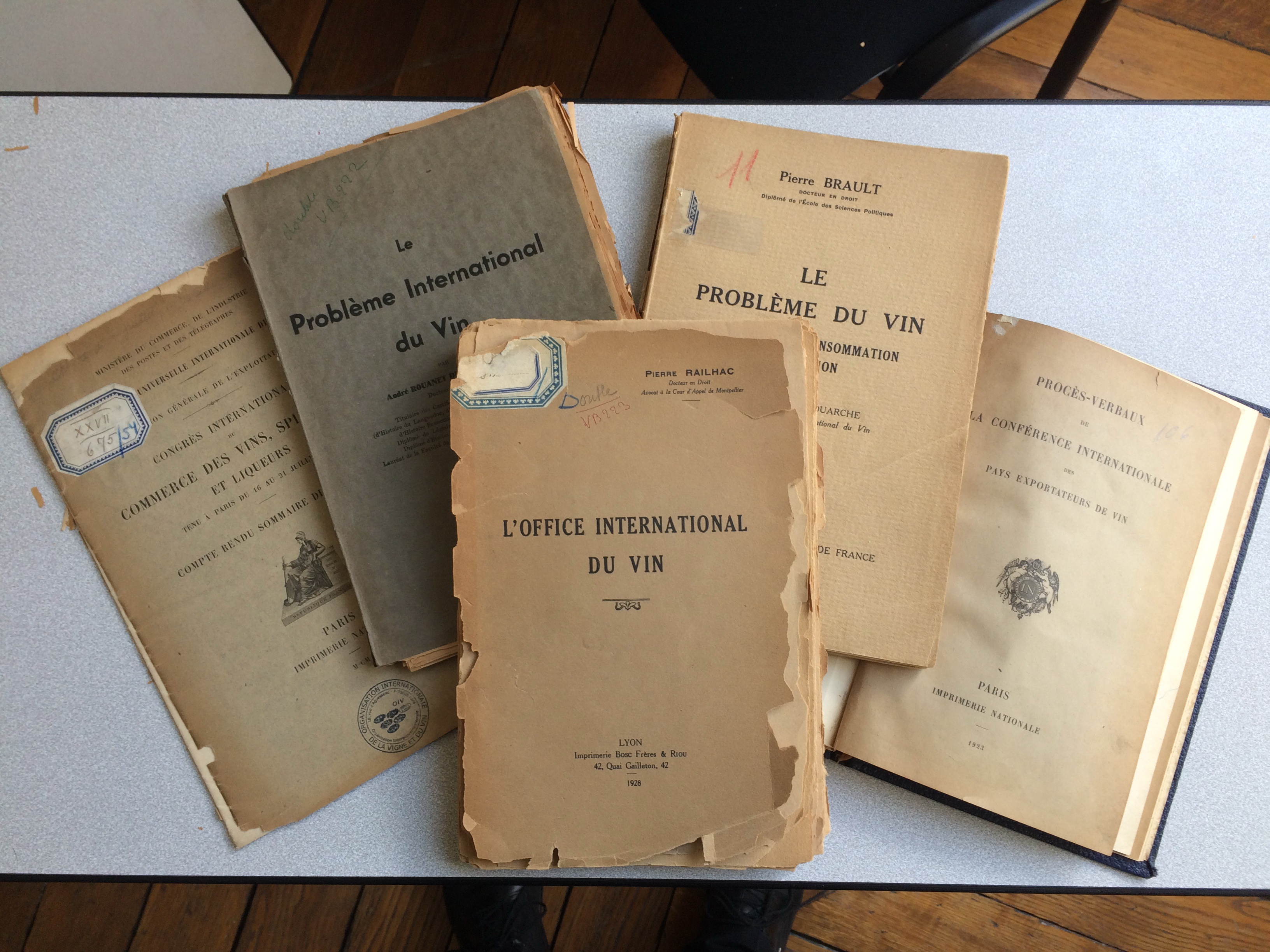

We have to go back a long way to discover the first international event in the field of wine. It was in 1874, after the phylloxera disaster that had almost completely destroyed European viticulture, that winegrowers from France, Italy, Switzerland, Austria and Germany gathered in Montpellier for a Congress that lasted from 22 to 30 October to work together to find ways of combating the dreaded insect.
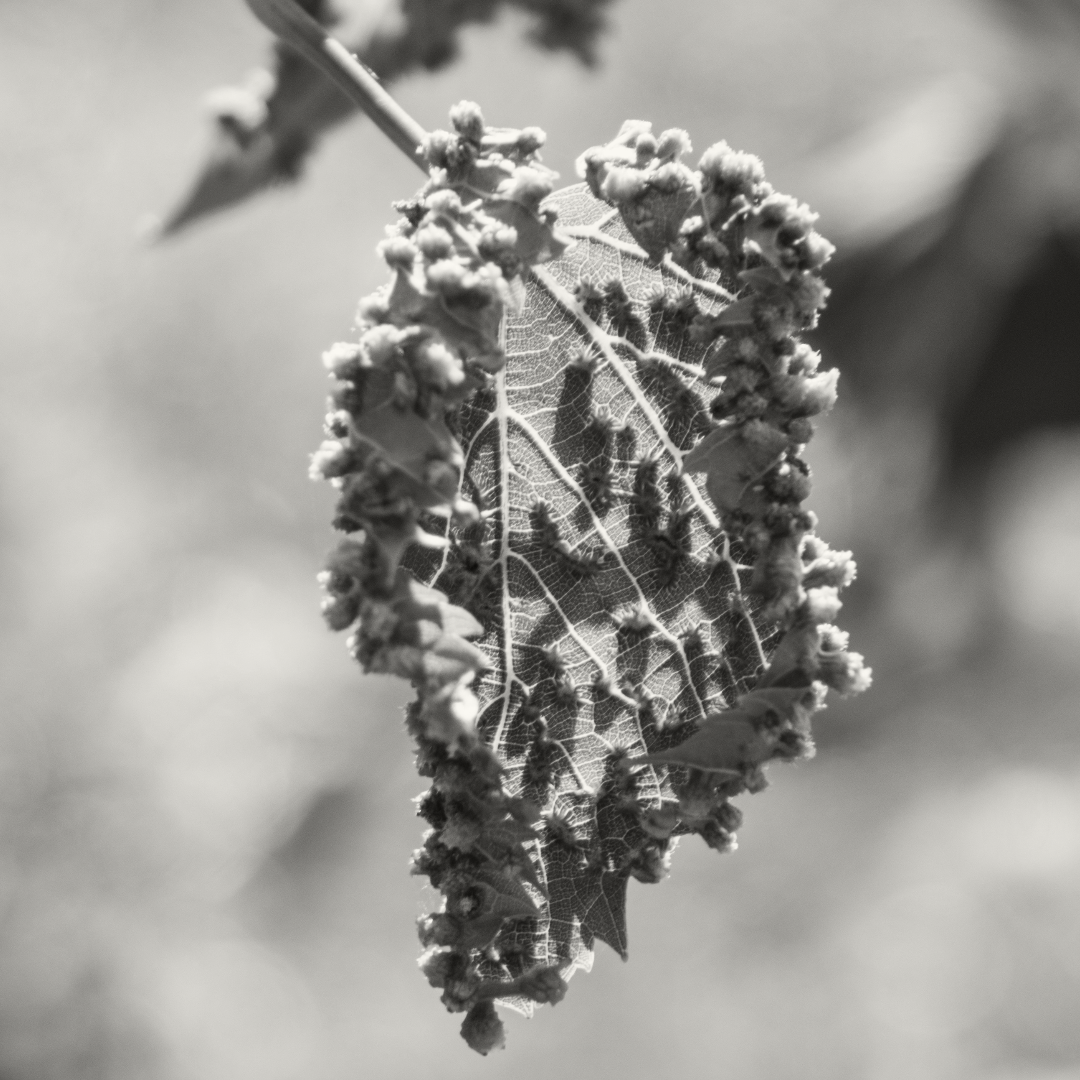

Thirty-five years later, the phylloxera crisis had been overcome, but another, more insidious danger was threatening winegrowing. The anarchic expansion of production and trade allowed fraud to take on such proportions that the world market was flooded with all sorts of beverages mislabelled as wine. In 1908 and 1909, two congresses were held, one in Geneva and the other in Paris, to examine this worrying problem. Serious progress was made by proposing an initial definition of wine and by recalling and confirming the principles of the Madrid Convention of 1891 concerning the repression of false indications of origin.
This development, hampered by the First World War, was resumed in 1918, thanks to an international conference of wine-producing countries, whose programme included the revision of customs tariffs, the regulation of trade between countries and the establishment of an international body made up of delegates from exporting and importing countries, responsible for arbitrating any disputes that might arise between them.
Then, in 1922, the Société d'Encouragement à l'Agriculture (France), still concerned about the global wine situation, suggested the creation of an international wine organisation by representatives from Italy, Greece, Spain, Portugal, France, Hungary, Luxembourg and Tunisia.
The idea was taken up again the following year at the Genoa Conference (1923), where it was even decided to hold a separate restricted meeting between Italy, France, Spain, Greece and Portugal to seriously examine the creation of such an organisation. The delegates from these countries decided to meet again a few months later in Paris, from 4 to 6 June, and agreed on the need for a permanent International Office to be maintained at joint expense by the States represented.
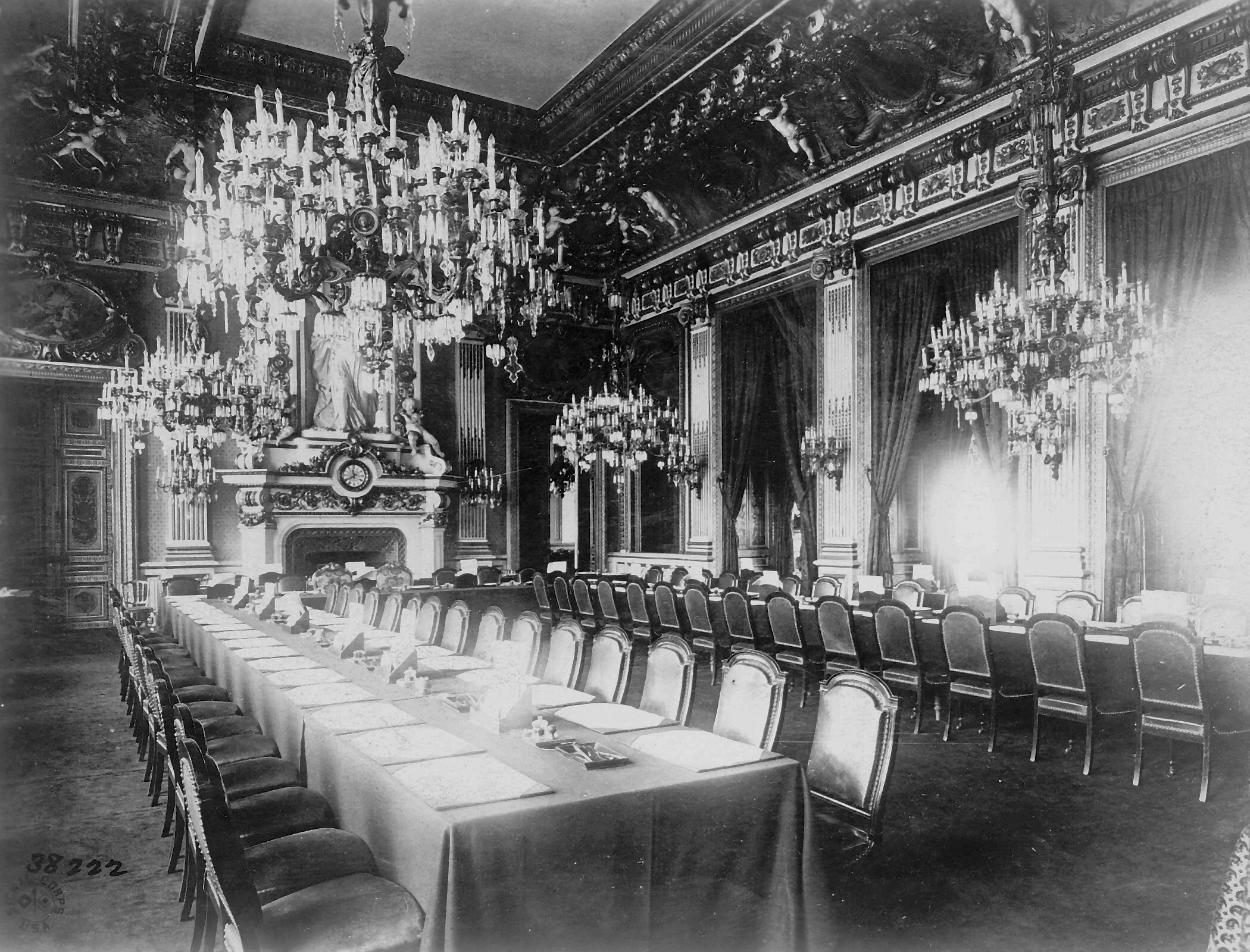

However, no concrete decisions were taken, and it took two more Conferences, convened again in Paris in 1924, to examine the possibilities and procedures for creating an international body. Their lengthy debates showed how difficult it was to overcome all the misgivings. Finally, on 29 November 1924, an arrangement was signed to create an International Wine Office in Paris.
Legally, therefore, the OIV was born, but it would not come into existence until at least five countries had deposited their ratifications, as stipulated in the Arrangement. We will therefore have to wait another three years, until December 3, 1927, for the required number of ratifications to be obtained, so that we can then hold the constituent session on December 5.
What was the state of the wine industry in 1924?
Since the beginning of the century, winegrowing had ceased to be limited to a small number of countries. It had gradually conquered major regions in North Africa, Latin America, Cape Town, Australia and the United States.
It is therefore an agricultural activity of great social, demographic and economic importance, whose spectacular development has taken place in total disorder, plunging the wine world into countless difficulties. Fraud is still rife everywhere, taxes on wine are often abnormally high, and prejudice against the drink, in the absence of serious and responsible information, is fuelling growing hostility, the most acute form of which is outright Prohibition. The example set by the United States, followed by Finland, spread to Europe, contaminating Switzerland, Austria and Denmark. As for production, it was steadily increasing thanks to the extension of vineyards, higher yields, the uncontrolled use of hybrids, etc., while consumption and trade stagnated. All the factors were in place for a serious crisis to erupt.
It was in this anarchic world that the Office International du Vin was created.
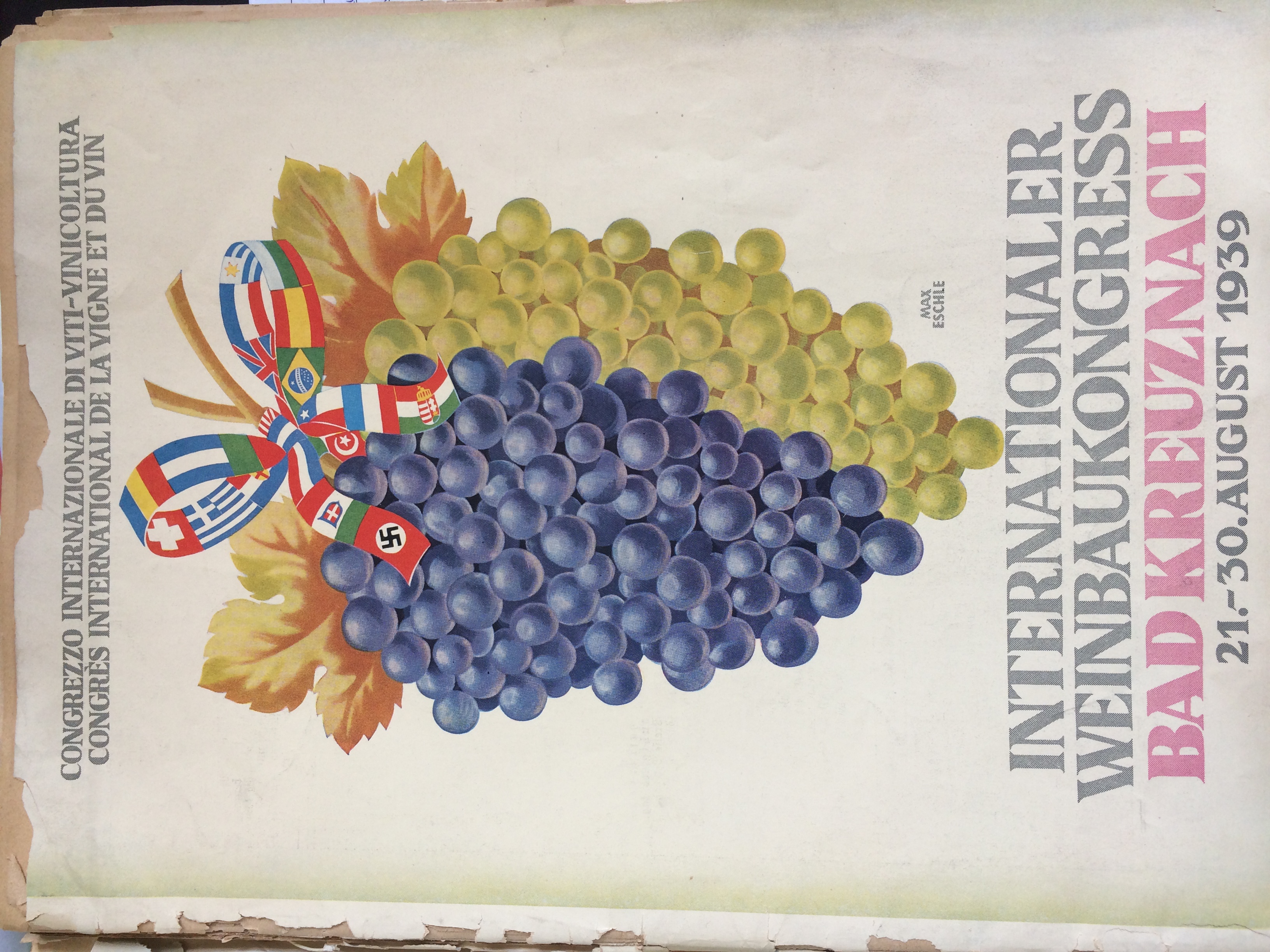

From its very beginnings, the Office was confronted with tasks of overwhelming complexity. It tackled them with courage and confidence, drawing on the active collaboration of the most prominent figures in the wine world at the time, under the authority of its first President, the Frenchman Edouard Barthe, and thanks to the energy of its first Director Léon Douarche and the three members of staff.
During the first decade of its existence, which ended with the outbreak of the Second World War, the OIV developed its activities in a number of areas.
First of all, it carried out a vast and lengthy survey to obtain as much information as possible on the size and nature of national winegrowing. In this way, for the first time, it was possible to gain an overview of the world winegrowing situation, with reliable economic, statistical, regulatory and technical information on the producing and importing countries.
This basic documentation, essential for any in-depth examination of the problems posed, is distributed in particular by the Bulletin de l'O.I.V., the first issue of which came out in June 1928.
Another aspect of the OIV's work is either to encourage technical research or to give a wider audience to existing research. Its monthly publication was open to all the researchers of the day, and covered a wide range of subjects relating to the techniques and science of vines and wine.
On a more practical level, the OIV also worked to coordinate international trade. After several meetings, surveys and conferences, the first Convention for the Unification of International Methods of Wine Analysis was signed in Rome on 4 June 1935.
The number of members rose from seven in 1928 to seventeen ten years later. A Scientific Committee, then a Legal Committee and even a Medical Committee were set up. During this period, the OIV held twelve General Assemblies. Five International Vine and Wine Congresses were also held.
These major gatherings of specialists from all over the world contributed through their work and debates not only to the necessary understanding and coordination between countries, but also to the development of vine and wine technology.
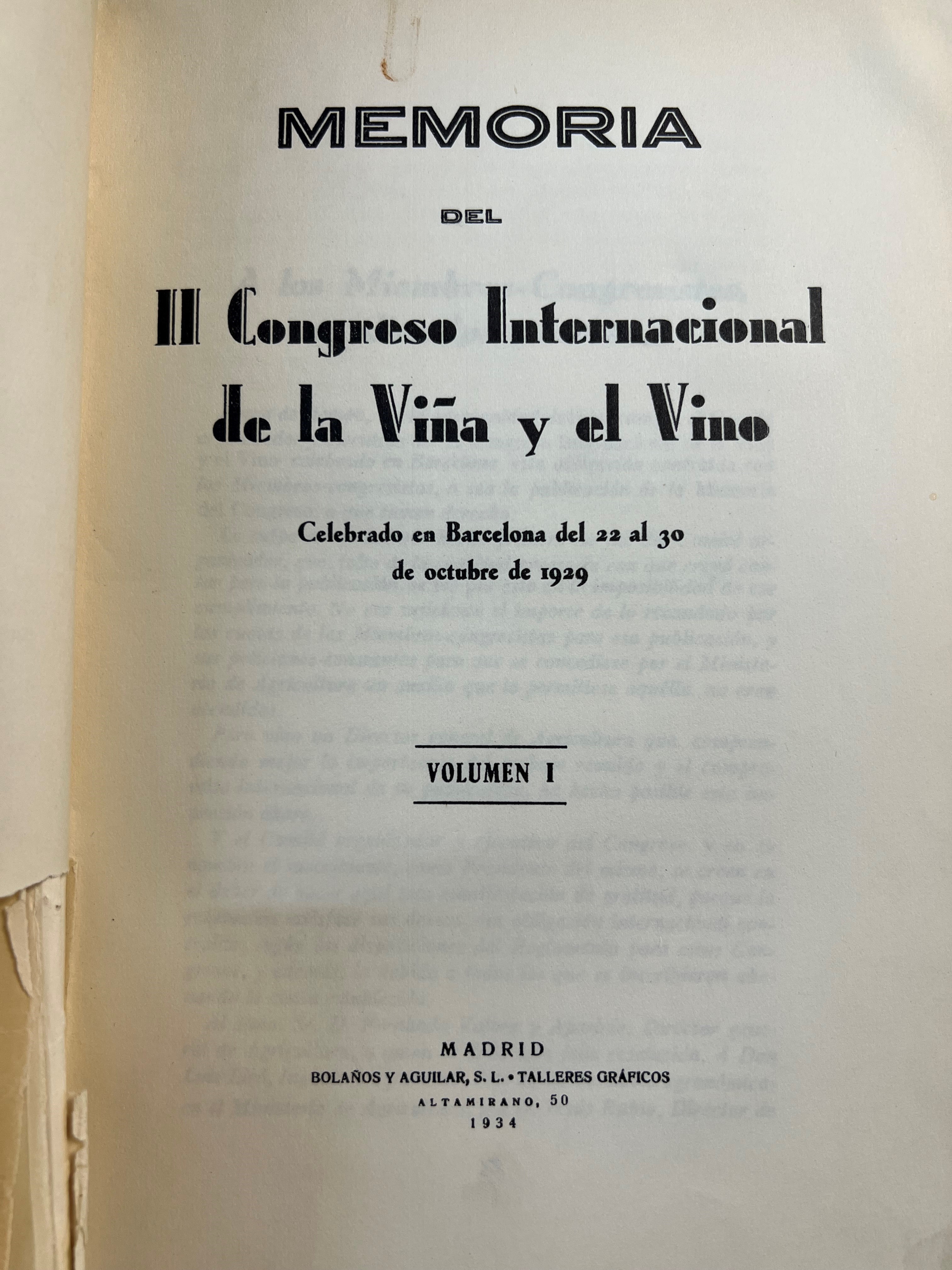

The Fifth International Vine and Wine Congress, held in Kreuznach-les-Bains in Germany from 21 to 30 August 1939, just before the outbreak of hostilities in the Second World War, was to be the last event of this period. During the dark years of the war, the O.I.V. could have disappeared.
But two men, President Edouard Barthe and Secretary General Basile Samarakis (who replaced Léon Douarche, who had been mobilised) saw things differently. Driven by an unshakeable confidence in the future, they set about ensuring the survival of the OIV, a work of peace and progress. The OIV Bulletin will be published and distributed wherever circumstances permit.
This will be a sign of remarkable vitality, and also a sign of hope. Finally, the work of documentation will continue, because research has not completely ceased and the wine press of many countries, curiously enough, still exists. This documentation will prove invaluable when peace returns.
With peace finally restored, President Barthe did not wait for it to be signed before convening an unofficial session in Paris, attended by some twenty diplomatic representatives from fifteen member countries.
Did he suspect that new trials awaited the Organisation? The creation by the United Nations of the Food and Agriculture Organisation, better known by its acronym FAO, calls into question the existence of all the international organisations in the agri-food sector.
The O.I.V., which falls into this category, finds itself, after having painfully overcome the danger of extinction, facing the peril of absorption. The Secretary General made two trips to Washington in November 1948 and November 1949 to plead for the autonomy and integrity of the OIV. His task was a difficult one, as each time he had to face large Assemblies made up of delegates from 60 countries, most of whom were hostile to wine. It was only thanks to his tenacity and the indispensable support of the French, Italian, Spanish and Portuguese delegations that the Office finally won its case. An agreement was signed which stipulated that "the FAO shall not take the place of the OIV in the performance of its tasks as an intergovernmental organisation specialised in the field of wine".
A new start
In July 1946, a statutory General Meeting was convened, at which 17 countries were represented, and during which a number of presentations were made, notably on the war years and the rebuilding of the vineyards. The member countries that had ceased to pay their dues were brought up to date. The OIV Bulletin now appeared regularly. Turkey, which had joined in 1946, invited an International Congress of Vines, Table Grapes and Raisins to be held in Istanbul in September 1947. That same year, for the first time, a General Assembly included on its agenda a technical question on a vine disease: court-noué.
The O.I.V. was thus reconstituted and operating normally when a major event occurred. On 25 July 1949, Edouard Barthe died, depriving the Organisation of its prestigious leader.
Baron Pierre Le Roy de Boiseaumarie was elected President three months later, and with him a new era began. The man who was nicknamed "the world's first winegrower" presided over the destiny of the OIV for 17 years, defending with admirable obstinacy a viticulture whose objective should not be quantity but quality.
Technical work played an increasingly important role in the General Assemblies, focusing on vine genetics, the choice of grape varieties, the influence of soil and climate, wine treatments, etc. The wishes and resolutions put forward emphasised the need to limit planting, protect appellations of origin and strictly regulate wine production and trade.
A new International Convention for the Unification of Methods of Wine Analysis was signed in Paris in 1954, confirming the creation of a Sub-Commission on Methods of Analysis which had been set up in Narbonne in 1951 and which subsequently developed a remarkable activity.
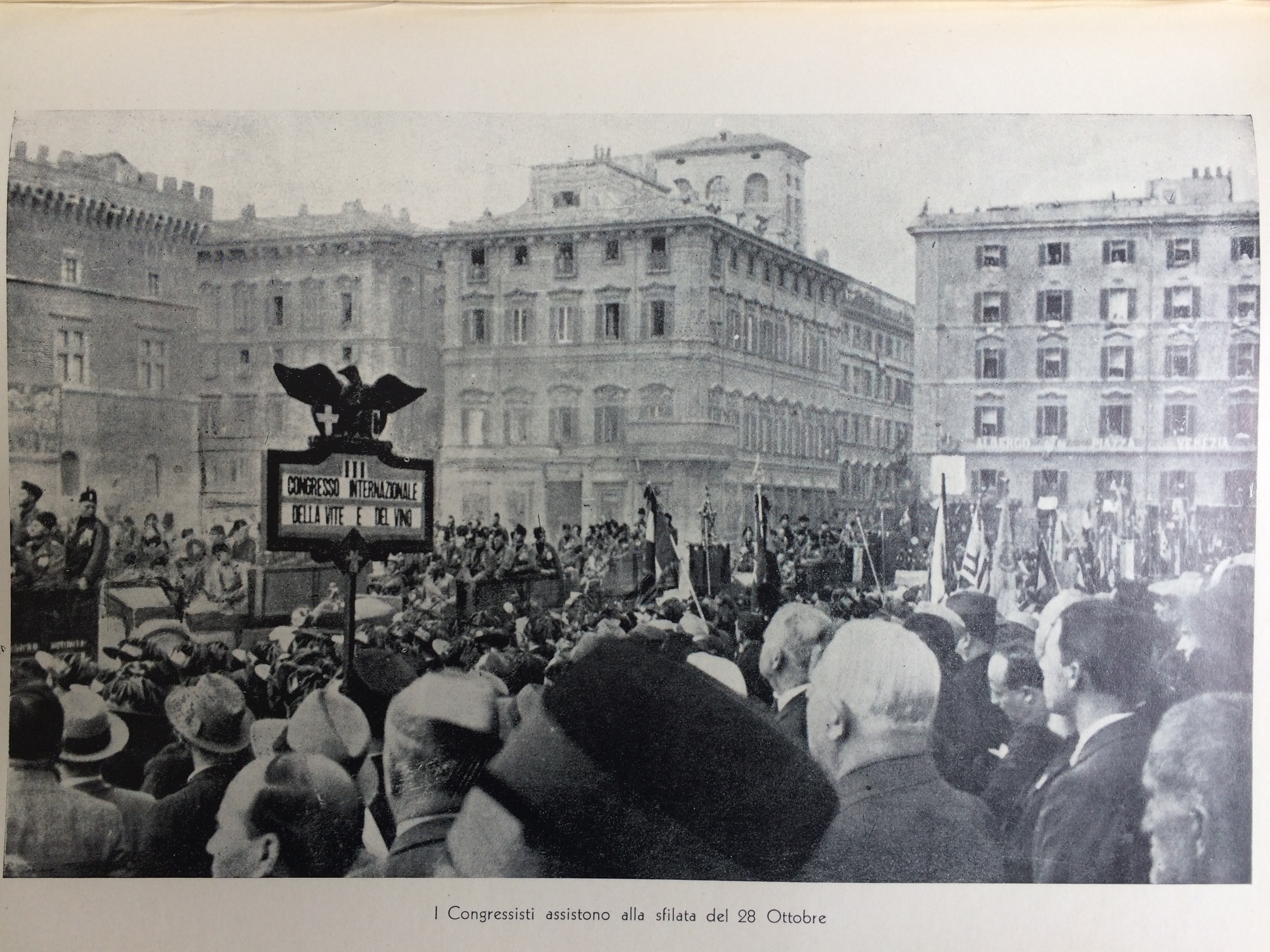

Publications expanded with the publication of a Directory of Viticulture Stations and Oenology Laboratories and the first volume of the International Ampelographic Register. Work began on a Vine and Wine Lexicon in 7 languages.
It was at this stage of its development that its director, on his return from a tiring Congress in Chile, succumbed to an illness that had been eating away at him for some time. On 17 July 1956, Basile Samarakis died after 17 years at the helm of the Office.
In the 50s and 60s, when science enjoyed unprecedented prestige, there was a proliferation of international organisations, both governmental and non-governmental, focusing on technical problems and an impressive increase in the number of Congresses, Colloquia, Conferences, Symposia, etc. which, by bringing together specialists in each discipline, encouraged scientific research, the exchange of ideas and the dissemination of knowledge. The structures of these organisations are new, more rational and more efficient.
The time has therefore come for the OIV, which is entering its thirtieth year, to adapt to the times by becoming a modern institution better equipped to accomplish its mission.
René Protin, former Director of Agricultural Production at the Ministry of Agriculture, was elected Director on 20 December 1956.
First of all, the new Director extended the objectives of the Organisation by having its name changed, by decision of the General Assembly held in Ljubljana in 1957, to : International Vine and Wine Office. He then set about giving the Organisation new structures, both in terms of its operations and its internal structure. The following year, in Luxembourg, the General Assembly adopted major changes: the creation of three Commissions with the power to set up Groups of Experts; new working methods for General Assemblies (which no longer differed significantly in form from Congresses); additional powers for the Council of the OIV, i.e. the President and 4 Vice-Presidents, who were responsible for drawing up technical agendas, etc.
However, Baron Le Roy, who had so profoundly influenced the work of the OIV, had to leave his post in 1963 for health reasons.
His successors for the following fifteen years were:
-
Eladio Asensio Villa (Spain) from 1963 to 1968
-
Gherassim Constantinescu (Romania) from 1968 to 1971
-
Pier-Giovanni Garoglio (Italy) from 1971 to 1975
-
Karl-Wilhelm Gartel (Germany) from 1975 to 1979
The director, René Protin, reached the age limit and had to leave the OIV, which he had served so well. The new director, Paul Mauron, an engineer from the Ministry of Agriculture, was elected in May and took up his post in July 1973. An excellent organiser, he set out not only to maintain the work in progress but also to give it the means to develop. He completed the modernisation of the structures begun in 1957, rejuvenating and adding to them. The new Rules of Procedure that he proposed to the General Assembly in Riva del Garda in 1974 streamlined and accelerated the workings of the OIV. Among other things, it created a Technical Committee, which proved to be of particular importance in helping to define the OIV's orientations and respond more effectively to current concerns.
Long-standing projects, begun a few years earlier, came to a successful conclusion: a set of rules for wine competitions was finally drawn up; a complete programme of studies for the training of oenologists was established; work on a Code of Oenological Practices reached the end of its first phase and a volume was finally published.
Studies in certain sectors were given greater depth by the fact that they were entrusted to Groups of Experts who met regularly, chaired by particularly competent specialists and provided with scientific secretaries.
During this period, the OIV became an important organisation, increasing its activities and acquiring more and more scientific and moral weight in the wine world. As a natural consequence, the number of members increased from 17 in 1957 to 30 in 1978, the 60th anniversary of the organisation.
Gilbert Constant, who succeeded Paul Mauron as Director of the Office in 1980, was succeeded in 1986 by Inspector General Robert Tinlot, who significantly increased the number of new members. Over the last fifteen years, this international expansion has grown to 45 Member States, representing over 95% of the world's wine production and consumption. This expansion will also be reflected in the diversity of nationalities of the following presidents:
- Stravoula Kourakou-Dragona (Greece) from 1979 to 1982
- Beat Neuhaus (Switzerland) from 1982 to 1985
- Mario Frégoni (Italy) from 1985 to 1988
- Nicolaï Pavlenko (USSR) from 1988 to 1991
- Gabriel Yravedra (Spain) from 1991 to 1994
- Alejandro Hernandez Munoz (Chile) from 1994 to 1997
- Fernando Bianchi de Aguiar (Portugal) from 1997 to 2000.
The Renewal: The office becomes The International Organisation of Vine and Wine
It was under this last presidency, and with the arrival in 1997 of a new Director General, Mr Georges Dutruc-Rosset, that a five-year period devoted to revising the OIV began.
This review, decided by a resolution of the General Assembly of the OIV on 5 December 1997 in Buenos Aires (Argentina), had as its objective the "modernisation of the missions and human and material resources of the Office".
When it was founded, the International Vine and Wine Office had eight wine-producing countries. A century later, there are 48, some with different visions and interests in the sector. Moreover, international trade has developed considerably. It was therefore essential for the OIV to be able to take account of these new challenges in a way that balanced the interests of all its members.
After three and a half years of work and negotiations, the 4th session of the International Conference of member countries of the International Vine and Wine Office, held on 3 April 2001, concluded with an International Agreement creating the "International Organisation of Vine and Wine", under the chairmanship of the Argentinian Felix Aguinaga, President of the OIV from 2000 to 2003, thus concluding the process initiated in Buenos Aires.
The most notable contributions of this agreement concern the missions, decision-making procedures and structures of the OIV.
The missions of the new Organisation have been modernised and adapted to enable it to pursue its objectives and exercise its powers as a scientific and technical intergovernmental body with recognised competence in the field of vines, wine, wine-based drinks, table grapes, dried grapes and other vine products.
The objectives of the new Organisation, which replaces the "Office international de la vigne et du vin", are as follows :
- to advise its members on measures to take account of the concerns of producers, consumers and other stakeholders in the wine sector;
- to assist other international intergovernmental and non-governmental organisations, particularly those engaged in standard-setting activities;
-
To contribute to the international harmonisation of existing practices and standards and, where necessary, to the development of new international standards, in order to improve the conditions under which wine products are produced and marketed, and to take account of consumer interests.
In order to achieve these objectives, the International Organisation of Vine and Wine has, among others, the following responsibilities:
-
to promote and direct scientific and technical research and experimentation
-
to draw up, formulate recommendations and monitor their application in liaison with its members, in particular in the following fields: conditions of wine production, oenological practices, definition and/or description of products, labelling and marketing conditions, methods of analysis and assessment of grapevine products;
-
to submit to its members any proposals concerning: the guarantee of authenticity of products made from vines, in particular vis-à-vis consumers, especially with regard to labelling, the protection of geographical indications and in particular wine-growing areas and designations of origin designated by geographical or other names associated with them, insofar as they do not call into question international agreements on trade and intellectual property, the improvement of scientific and technical criteria for the recognition and protection of new varieties of vines:
-
to contribute to the harmonisation and adaptation of regulations by its members or, where necessary, to facilitate mutual recognition of practices falling within its remit;
-
to participate in the protection of consumer health and to contribute to the safety of foodstuffs: by specialised scientific monitoring, making it possible to evaluate the specific characteristics of products derived from the vine, by promoting and directing research into the appropriate nutritional and health characteristics, and by disseminating the information resulting from this research to the medical and health professions.
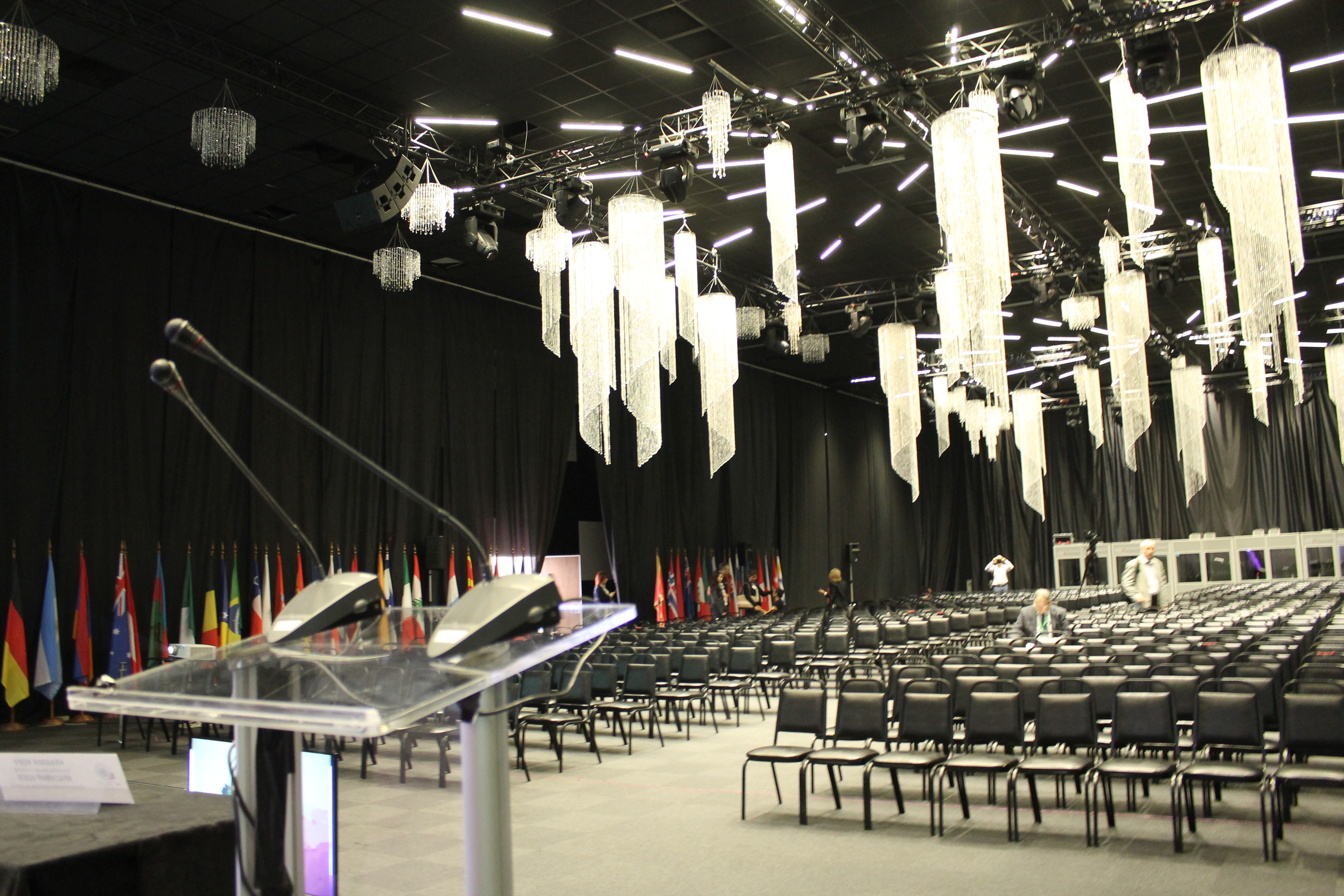

Consensus is the General Assembly's normal decision-making method for adopting general, scientific, technical, economic and legal draft resolutions, as well as for creating or abolishing committees and sub-committees. The same applies to the Executive Committee when exercising its powers in this area.
The decision-making structure remains essentially the same (General Meeting, Executive Committee, Board). The voting structure has been modified to ensure an objective distribution of weighted votes, which are no longer left to the free choice of member countries according to their membership fees. Each country has two basic votes, plus a number of additional votes calculated on the basis of objective criteria determining the relative position of each country in the world wine sector (production, surface area, consumption).
The Agreement also provides for the possibility for an international intergovernmental organisation to participate in the work of the OIV, which guarantees the reciprocity criterion set out in the observer status.
Finally, French, English and Spanish are the official languages, to which Italian and German have been added, which, in accordance with the Agreement, enables the constituent bodies of the OIV to operate in an open and transparent manner.
However, as was the case in 1924, the new Organisation will have to wait for the States to ratify the new Agreement before it can really function with this new mandate.
On 23 December 2003, the French Parliament's approval of the Agreement of 3 April 2001 establishing the "International Organisation of Vine and Wine" was the 31st instrument enabling this International Agreement to come into force on 1 January 2004, at a time when Mr Dutruc-Rosset was giving way to the Italian Federico Castellucci, who would be the first non-French Director General of the "Office" and who would be confirmed at the head of the "Organisation" on 17 March 2004.
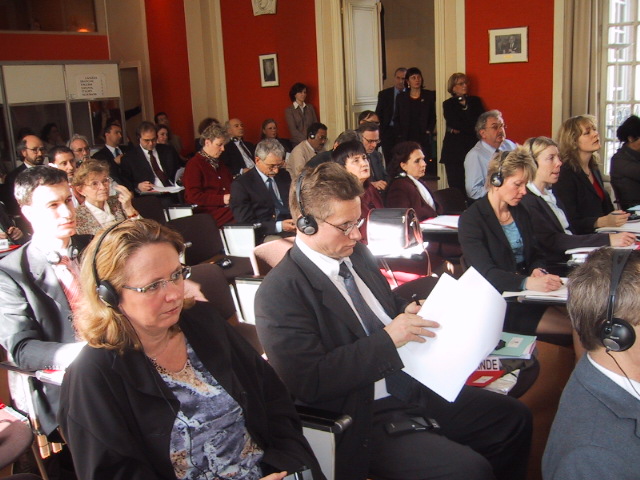

This Agreement creates a new dynamic in the world wine sector by setting up a specific, modern intergovernmental organisation, whose operating procedures make it an international forum for exchanging views and reconciling positions, leading to the adoption of resolutions or scientific and technical recommendations in the field of vines, wine, wine-based beverages, table grapes, dried grapes and other vine products, helping to further the international harmonisation of practices and regulations essential to the development of international trade in the interests of producers, distributors and consumers.
Building on this momentum, under the presidency of Prof. Dr. Reiner Wittkowski of Germany (2003-2006), new operating rules were put in place, with the adoption of new Rules of Procedure and, above all, the formulation of the 1st Strategic Plan of the International Organisation of Vine and Wine, which set out its vision: to be the world's leading scientific and technical organisation for vine and wine, and affirmed its mission:
In accordance with the remit set out in article 2.2 of the Agreement of 3 April 2001, in order to achieve its vision, the OIV will foster an environment conducive to scientific and technical innovation, to the dissemination of its results and to the development of the international wine sector. It will promote, through its recommendations, international standards and guidelines, the harmonisation and sharing of information, and knowledge established on a proven scientific basis, in order to improve the productivity, safety and quality of products and the conditions under which wine products are produced and marketed.
At the beginning of the 21st century, with the successive presidencies of Peter Hayes (Australia 2006-2009), Yves Bénard (France 2009-2012), Claudia Quini (Argentina 2012-2015), Monika Christmann (Germany 2015-2018), Régina Vanderlinde (Brazil 2018-2021) and Luigi Moio (Italy 2021-2024) and the leadership of Jean-Marie Aurand (France 2014-2018) Pau Roca (Spain 2019-2023), John Barker (New Zealand, since 2024) the OIV, with its 50 member states, is the benchmark organisation for the wine sector, dealing with all the issues that will shape the future of the sector.
At the centre of the challenges linked to climatic, societal and digital developments, the OIV has increased both its human capacities, thanks to the renewal of a qualified international secretariat, and its functional capacities, both by transferring its headquarters to an optimised site and by developing new communication tools to facilitate exchanges between the scientific community of its 50 Member States.